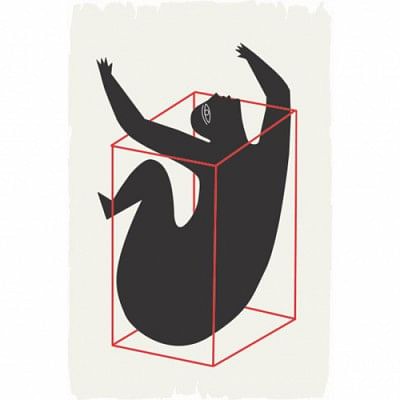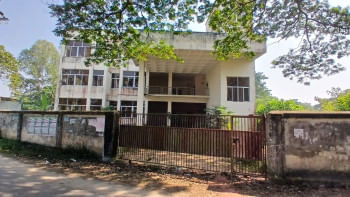Did our independence decolonise our consciousness?

At this time of celebrating the 50th anniversary of our independence, it is also necessary to think deeply about our success in eliminating the social and political injustices that existed in our country during the pre-independence period. Careful examination is also necessary to perceive whether many people in our society had genuinely upheld the spirit of the Liberation War since our independence. Karl Marx regarded shame as a revolutionary emotion. For Marx, shame is a revolution in itself because this particular sentiment can transform temperaments by making people experience guilt and sadness for their misdeeds. People would only make attempts to rectify faults if they are ashamed of their wrongdoings. But if people do not have the consciousness of the necessity to reject greed, blind belief and prejudice, can we expect that they will ever become cognisant and ashamed of their unjust acts?
Our Liberation War against the Pakistani military regime signifies a resistance to tyrannical rule, communal hatred, and the ruthless oppression of innocent people. Sadly, social and political injustices did not cease to torment people after the independence of Bangladesh. Why do such problems perpetuate even after gaining liberation through a people's war? I remember a cogent statement from Argentine film theorists Fernando Solanas and Octavio Getino with regards to decolonisation: "The battle begins without, against the enemy who attacks us, but also within, against the ideas and models of the enemy to be found inside each one of us." Although we fought an oppressive regime for our independence, many of our politicians did not make conscious efforts in post-independence Bangladesh to rid their minds of the mental attributes of the Pakistani military-bureaucratic elite.
Military rule returned in our country within four years of independence. Even after the restoration of democracy in 1991, in order to reap political benefits, the two major political parties of the country maintained close cooperation with a former military general guilty of governing the country as an autocrat. In 1971, our countrymen emphasised Bengali cultural identity and religious harmony. But after 1975, the ban on religion-based politics was lifted and Islamist parties were allowed to take part in politics. The inclusion of religious idioms and rhetoric into politics appeared to be a regular phenomenon in Bangladesh since 1975. Despite their professed commitment to upholding the ideals of the Liberation War, the two major parties often appeased the communally-based political parties. Leaders of an Islamist party that sided with the Pakistani forces during our Liberation War also became ministers of a coalition government in Bangladesh. Over the past 30 years, terrorist atrocities by Islamist fanatics and attacks on minority communities took place several times in our country, revealing that certain groups of people subscribe to the ideology that is totally antithetical to the ideals of the Liberation War.
For eminent political thinker Frantz Fanon, it is not enough to merely achieve decolonisation—it is also necessary to decolonise the mind. He asserts that without instilling a change of consciousness in people, political freedom from colonial rule would just be a formal independence. It will not ensure actual freedom, and transgressions afflicting people in the pre-independence period would continue to persist in the independent country ruled by new leaders. According to Fanon, two requirements are to be fulfilled in order to achieve true decolonisation: the obliteration of the social, political and economic structures of the colonial regime, and the creation of a new people with a liberated consciousness.
Instead of incorporating mindless entertainment or doctrinaire statements, cultural ingredients in the newly-independent society should include edifying, socially-meaningful messages that appeal to the people's intellect. Art and culture should be used as instruments of education, prudence and social awareness to bring about revolutionary change in the individual's way of thinking. Due to the absence of the colonial political and administrative structures and through the influence of radical cultural creations and activities, a new species of socially-conscious people would emerge who neither indulge in immoral acts nor put up with the attempts of political leaders to mimic the misdeeds of the former rulers.
Over the years, our country made substantial economic progress. But economic development cannot be the sole marker of a country's success in ensuring the well-being of citizens. Despite economic improvement, serious issues such as the lack of good governance, indifference to democratic principles, religious fanaticism, and maltreatment of ethnic minorities continue to jeopardise the social and political fabric of our country. Such problems perpetuate because sincere attempts were not made since our independence to bring forth a radical restructuring of consciousness via transformative cultural and political practices. The state did not instruct cultural producers to use their creations as instruments for raising a critical consciousness. Film, one of the significant components of mass communication, was not used in the newly-liberated country to reinforce the revolutionary spirit. On the contrary, the majority of our films retained the long tradition of offering escapist entertainment, thereby conditioning people's taste by triviality and shallowness. Lack of concern demonstrated in different decades by the government as well as the intelligentsia about the persistence of a pleasure and profit-driven culture can be seen as indicative of the leaders' failure to embrace ideas marked by a new consciousness.
Fanon also argues that political structures do determine political behaviour. The political and administrative structures of the colonial regime are specifically designed to ensure the privilege of the ruling few. Important ingredients of an egalitarian system such as accountability, transparency, rule of law and inclusiveness are disregarded within colonial rule. Therefore, in a country liberated from a colonial system, it is necessary to completely destroy the colonial structure instead of carrying out mere structural reform of the polity. We struggled against the Pakistani colonial system, yet after liberation, we did not dispense with the colonial administrative and political structures. Didn't this indicate our adherence to "the ideas and models of the enemy" and our failure to decolonise our psyches? If political leaders are seen prioritising the protection of their own power and privilege rather than setting an example of selfless service to the people, there is a danger that the temperaments of their followers will be influenced by such greedy attitudes. Due to the lack of critical consciousness and political education, the masses will also dream of becoming privileged in a class-divided society, rather than realising the necessity to dismantle colonial structures that perpetuate social injustice.
Long-standing problems continue to persist in our society since 1971 due to the absence of new citizens with a revolutionary consciousness. We can keep discussing and complaining about continuing exploitation and injustice, but such evils will never cease to exist unless measures are taken, culturally and politically, to generate a psychic change among people. Such a change will enable them to be ashamed of their immoral acts and to oppose all kinds of oppression. As serious social and political issues exist in our country even after 50 years of independence, we should be aware of the necessity to transform our people into responsible, socially-aware citizens. Fanon rightly realised that the task of decolonising the mind is more difficult than achieving freedom from a colonial power. Just after independence, it was easier to create new people and to have an entirely new political system free from the undesirable traits of the colonial regime. Now, the task of decolonising the mind will be harder, but the challenge must not be avoided because only by attaining a liberated consciousness can individuals achieve true freedom in an independent country.
Dr Naadir Junaid is Professor of Mass Communication and Journalism at the University of Dhaka.

 For all latest news, follow The Daily Star's Google News channel.
For all latest news, follow The Daily Star's Google News channel. 



Comments